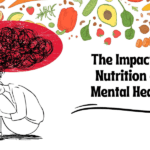By: Muhammad Zubair Sarwar
Insights from Ancient Wisdom and Modern Psychology
Positivity is more than just a feeling—it’s a powerful force that can transform your life. It improves your physical and mental health, reshapes your reality, and guides you toward success. Thinkers from ancient times, like Aristotle, to modern psychologists such as Martin Seligman and Barbara Fredrickson have explored the importance of it and its impact on human behavior.
In this blog, we’ll look at how ancient philosophers and modern psychologists have studied positivity. We’ll also explore the science behind it, its benefits, and practical ways to bring it into your life.
Whether you’re facing challenges, working on personal growth, or aiming for success, an optimistic approach can help you achieve a happier, healthier, and more fulfilling life.
Ancient Philosopher’s Concept of Positivity:
Aristotle’s Insights about Positivity:
Aristotle, the renowned Ancient Greek philosopher, deeply explored the concept of positivity. He was particularly fascinated by the idea of well-being, which he referred to as “flourishing.” Aristotle believed that the ultimate goal of human life is to achieve a flourishing state.
But how does flourishing connect with positivity?
According to Aristotle, it goes beyond simply seeking pleasure or avoiding challenges. He viewed it as leading a life guided by strong moral values.and reaching your full potential. By embracing positive traits like wisdom, kindness, and courage, individuals can create a meaningful and fulfilling life.
In Aristotle’s view, it isn’t just about feeling good in the moment but striving for greatness, which leads to enduring happiness
Ancient Thinkers on Happiness
A distinct viewpoint on optimism was provided by classical thinkers such as Marcus Aurelius and Seneca. They held that although we have no influence over outside circumstances, we do have control over how we react to them. For them, mental resilience—maintaining composure and steadiness in the face of hardship—was the essence of positivity.
“We suffer more often in our imagination than in reality,” Seneca remarked.
The philosopher argued that we can sustain a persistent sense of optimism that is independent of our environment by teaching our minds to concentrate on the things we can control and by developing thankfulness and contentment.
According to Marcus Aurelius, “the quality of your thoughts determines how happy your life will be.”
Regardless of outside obstacles, you can live a happy and joyful life by adopting a positive outlook.
Modern psychological insights:
The creator of positive psychology, Dr. Martin Seligerman, added a new perspective to positivity. It gives life meaning, while traditional research focused on mental illness and dysfunction. According to him, being positive is a skill that can be developed via practice rather than natural trait.
He presented the “LEARNED OPTIMISM” hypothesis, which states that people can learn to see things positively through training. He disproves “learned opportism,” the idea that bad things in life are beyond one’s control.
By altering people’s thinking from helplessness to optimism, individuals can boost their well-being, minimize stress, and their physical health is improved.
Broader & Building Concept of Barbara Fredrickson:
The Broaden and Build theory, which explains how positive emotions impact the brain, was presented by Dr. Barbara Fredrickson. Feelings that are beneficial, like love, gratitude, and joy, in her opinion, benefit us in ways that go beyond simply feeling good.
These qualities enable us to widen our horizons, develop our creativity, and improve our abilities. Being optimistic offers us the courage to deal with life’s challenges. For instance, love improves social relationships, whereas joy increases resilience. According to Fredrickson, optimism makes our lives happier, which leads to both short-term fulfillment and long-term well-being.
The Contribution of Neuroscience to Happiness:
The development of the neurosciences has shown that the brain is more flexible than previously thought.
Optimal thinking strengthens the neural circuits associated with optimism. We can more easily embrace beneficial thinking in the future thanks to this approach. Conversely, thinking negatively strengthens your negative brain pathways, which makes it harder for you to think positively.
As a result, you can alter the way you think. By regular Good thinking, you can make your mind positively defecating.
The Connection Between Dopamine and Gratitude
Practicing gratitude is the simplest and most effective way to accept hope. It has been scientifically demonstrated that expressing thankfulness increases dopamine production, a hormone associated with joy and happiness. Your mind can generate a sensation of well-being by expressing gratitude.
You can start creating a positive cycle of feedback by consistently practicing gratitude.Consequently, dopamine is released when one is grateful, and this leads to cheerfulness.In addition to offering momentary comfort and enjoyment, this procedure improves mental health in general.
Science Based Actionable Strategies:
Use constructive affirmations:
Your inner thoughts have a big impact on how you develop your attitude. It will be difficult for you to acquire optimism if you think negatively all the time since it will strengthen your negative brain connections.Conversely, thinking positively will make the trait of optimism stronger.
Try to consider the consequences of negative thoughts in order to eliminate them. You want to make an effort to swap out those pessimistic thoughts for encouraging ones like
- I’m worthy of happiness.
- I have resilience.
- I am optimistic.
Marvellous Role of Mindfulness and Meditation:
Mindfulness means to practice being totally present in the moment. Studies show that mindfulness and meditation play a great role in enhancing positivity, improving focus, and reducing stress. Mindfulness greatly helps in curbing negative thoughts.
By meditating for five minutes each day, you can begin to enhance your awareness of your body’s breathing. You may incorporate meditation into your self-care practice to improve your brain as you become more adaptive.
Divide your Goals into Small Segments:
The foundation for growth is a feeling of achievement. You may establish a constructive cycle of feedback by setting small, attainable goals. Always divide your bigger goals into small practicable segments. Celebrate each accomplishment, no matter how small it is. This will strengthen your sense of positivity and give you the courage and motivation to achieve your bigger objectives.
Final Thought:

There is something admirable about optimism. Positive thinking has been seen as a key component of Success, Resilience, and Happiness since the time of ancient philosophers like Aristotle and contemporary psychologists like Martin Seligman and Barbara Fredrickson.
You can have the wonderful quality of cheerfulness in your life by implementing doable techniques like gratitude, mindfulness, positive self-talk, and small, achievable goals. It equips you to deal with life’s challenges.
Include the aforementioned amazing techniques into your life starting today, and it will lead to a wonderful perspective and a great transformation of your life.















